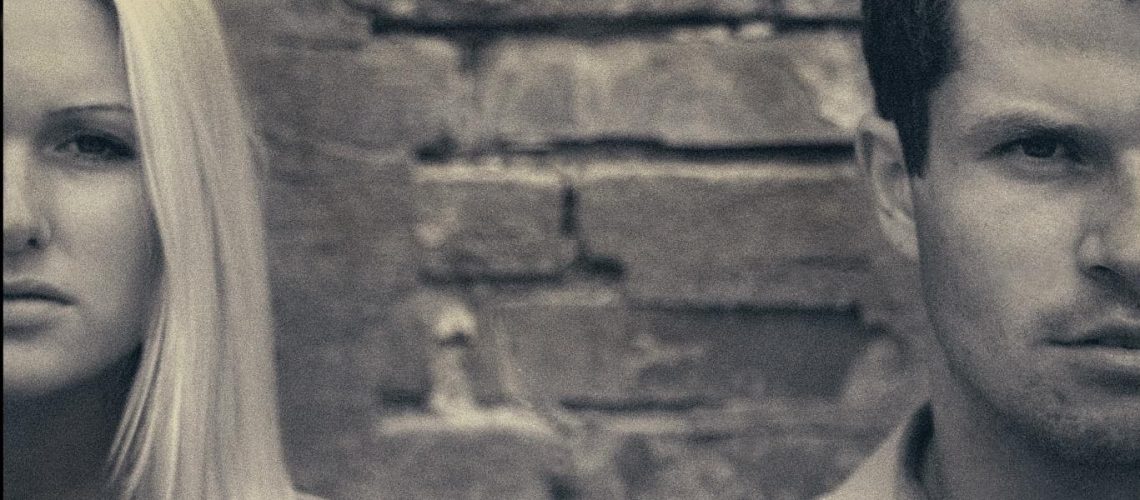If you’ve ever felt like the world was coming to an end, depressed or in despair when you’ve let go of a relationship, then you may have experienced withdrawal, or what the Behavioral Health industry has been calling “Love Addiction.”
In the PIVOT Process, we define this as Attachment Dysregulation, to highlight the severity of the condition.
What Is Attachment Dysregulation (Formerly Known As Love Addiction)?
Attachment Dysregulation is a condition that is typically created by adopting survival patterns to tolerate feelings of abandonment or neglect.
What Causes Attachment Issues?
Often individuals that have Attachment Dysregulation have experienced unresolved abandonment and neglect in childhood. This leads them to be challenged with attachment wounds and can make them feel lonely, empty, and lifeless.
The result?
When in a relationship, the default behavior is to cling to another person because of a deep fear of abandonment and neglect. Until the attachment wounds have been treated.
What Are The Most Common Attachment Styles?
There are several ways that our relationship with our caregivers in childhood can affect our adult life. As kids, we tend to manifest the following four attachment styles:
- Secure: this style of attachment is considered to be the healthiest. It comes about when parents give their children sufficient care, protection, and emotional support.
- Anxious-ambivalent: this attachment occurs as a result of unpredictable parenting. The child is in distress when the caregiver is gone and ambivalent when they return.
- Anxious-avoidant: kids with an avoidant style tend to ignore their caregiver and show little emotion. It occurs as a result of a neglectful or unresponsive parenting style.
- Disorganized: a child that exhibits disorganized attachment shows no clear attachment behaviors.
How Attachment Disruption Leads To Dysregulation
A secure attachment can become disrupted for a great number of reasons, leading to a series of difficulties for the child later on in their life. A child with attachment wounds is likely to experience issues with forming and maintaining relationships in adulthood.
For example, an adult with attachment issues may struggle with expressing their emotions to their partner and communicating with them in a healthy way. Bottling up emotions and withdrawing emotionally can take a great toll on any relationship and cause great distress for both parties.
The dangers of traumatic attachment and affect dysregulation
There are many ways in which childhood trauma can affect your adult relationships. Our attachment style is, in fact, one of the most important factors that influence our ability to form and maintain healthy intimate relationships. Some of the most common attachment dysregulation patterns we see are:
- If we’re rejected or neglected by our parents when we’re young, we may develop a tendency to avoid commitment, keep our partners at a distance, and show little genuine emotion for fear of being rejected once again.
- If we’re hurt or abused by our caregivers, we can develop an attachment style where we struggle to trust our partner, fear abandonment and rejection and have trouble showing our emotions freely.
- If our parents are inconsistent in tending to our needs, we tend to be clingy in our relationship, crave lots of attention and intimacy and be paranoid about the relationship falling apart.
How Do You Know If You Have Fear of Abandonment?
If you feel overwhelmed that your partner will leave you, it may be the case that you have a deeply rooted fear of abandonment that is a result of a traumatic emotional experience from your childhood. But how do you know for sure that that’s the case? Look out for these signs:
- Are you sensitive to criticism?
- Do you have trouble trusting your partner?
- Do you find it hard to make friends?
- Have your relationships been predominantly unhealthy?
- Do you get attached quickly, but also move on quite soon?
- Do you blame yourself for anything that goes wrong?
- Do you do everything in your power to please your partner?
- Do you tend to stay in the relationship even though you know it’s not healthy?
If these sound familiar, it’s very likely that you’re struggling with fear of abandonment that probably comes from emotional abandonment you experienced when you were a child.
How Do You Know If You Have Attachment Issues?

Individuals who have unresolved childhood abandoned issues are in a destabilizing position – they feel anxious and depressed. In most cases, they are unable to show up for commitments, work, and family.
This anxiety and depression lead to feeling relationally challenged with people and when relationships don’t work or end, they experience relational withdrawal.
Anxiety can create a pattern of addictive relationships and result in Attachment Dysregulation (formerly known as love addiction) and codependency.
If you’re wondering if you or a loved one has Attachment Dysregulation, here are the most common signs and characteristics to look for:
Most Common Signs And Characteristics Of Attachment Dysregulation:
- Lack of nurturing and attention when young
- Feeling isolated, detached from parents and family
- Seek to avoid rejection and abandonment at any cost
- Highly manipulative and controlling of others
- Unrealistic expectations of others in relationships
- Mistake intensity for intimacy (drama driven relationships)
- Hidden pain or denial
- Afraid to trust anyone in a relationship
- Inner rage over lack of nurturing, early abandonment
- Sense of worthlessness without a relationship or partner
- Need for positive regard
- Tolerance for high-risk behavior
- Presence of other addictive or compulsive problems
- Using others, sex and relationships to alter mood or relieve emotional pain
- Confusion of sexual attraction with love at first sight
- Trading sexual activity for “love” or attachment
- Outer facade of “having it all together” to hide internal disintegration
- Existence of a secret “double life”
- Refusal to acknowledge the presence of a problem
- Leaving one relationship for another and the inability to be without a relationship
If you’ve gone through any of the situations described when your relationship ends, then you may experience withdrawal symptoms of Attachment Dysregulation such as:
Common Withdrawal Symptoms Of Attachment Dysregulation:
- Difficulty focusing
- Depression
- Anxiety
- Having a hard time with a spiritual connection
- Spending money that you don’t have
- Not able to show up for other relationships
- Unmet longing
- Missing deadlines at work
- Fear
- Panic
- Nausea
- Upset stomach
- Dramatic changes in weight
- Insomnia
- Obsessive thinking
- Rage
- Loneliness
- Irrational thinking
- Irritability
- Extreme grief
- Restlessness
- Anger
- Nightmares
- Fatigue
- Inability to concentrate
- Emotional instability
- Inability to care for yourself or others such as children
- Suicidal thoughts
- Denial
- Despair
What does withdrawal from love addiction look like?
For a person experiencing attachment dysregulation, a withdrawal from a relationship looks a lot like recovering from any other addiction. It’s a highly emotional and stressful experience that may leave serious consequences without effective relationship addiction counseling and other forms of care.
The recovery process tends to be long and tedious, with a number of intense highs and lows. What’s more, the experience of emotional dysregulation attachment can sometimes include physical symptoms such as vomiting and stomach aches, as well as extreme psychological symptoms like severe depression, anxiety, and distress.
What To Do If You Experience Attachment Dysregulation
(Formerly Known As Love Addiction)?
If you think you are in withdrawal from love addiction, you must give yourself time to heal.
The good news is you’re not stuck with this forever. You can heal and create secure attachments in the future.
How To Deal With Love Withdrawal

Recovery starts with being aware of and recognizing the symptoms. It is about getting the right help and being motivated and accountable to the process.
Healing allows you to reconnect to yourself with self-compassion and self-love and have a different outcome…
Remember, you are worthy of happiness and love and a healthy relationship. You can have relational freedom.
Freedom From Love Addiction: How We Can Help
At the Glass House, located in Northern California, we offer a 5 day retreat program, which is designed to repair and restore relational challenges and heal old attachment wounds. For those of you who are unable to visit the Glass House, we also offer remote, one on one relationship coaching with a certified PIVOT advocate. We’re here to help!

